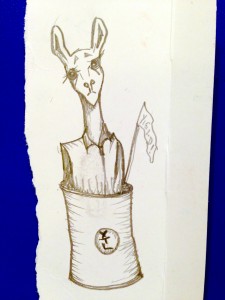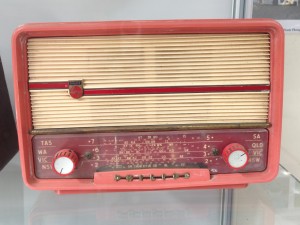Short blurb…
The proof that art will concur machine. In an interview setting, musician Nick Costello stands with just a guitar in hand poised to perform his single, Shiver, when he reveals some truths about being a Melbourne artist.
Audio Organica – Introducing Nick Costello
After consulting with Maria, the receptionist at the Melbourne City Council, I gained verbal permission to record the Audio Organica project under The Morell Bridge in South Yarra.
In this series, I hope to explore the aural effects of this space, and in addition, any cognitive affects that it may have on performers who are forced to compete with the sounds of the ducks, seagulls, joggers, cyclists and motor vehicle traffic.
I have been inspired by Trevor Cox of The University of Salford University UK in his research into the affects of sound (1).
My first participant to perform their sounds in the space is the solo artist, Nicholas (Nick) Costello. On a Friday morning, we ventured down to the river armed with 2 studio microphones, a Rode Nt1 and a NT1000, 1 H6 Zoom recorder with a wind sock, 3 stands and a guitar in the hope to gage the affects and effects of this space. I positioned the Rode microphones wide… one left and one right, these were plugged directly into the H6 XLR inputs. Nick was singing directly into the H6 XY mic that I set to 120 degree pattern so that I could capture a wider sound. The semiacoustic guitar was plugged into the jack input of the H6, however, I wasn’t happy with the tone from the guitar’s transducer, I found it thin and lacking clarity, therefore, I applied some EQ to enhance the lower frequencies. On setting up the Rodes, I carelessly left the NT1000 leaning up against a rail where it fell and hit the ground with force, luckily, the shock mount seemed to take the brunt of the impact.
What I discovered was that, during the recording, the passers by would not ‘act naturally’ and make the noises that they would have had we not been recording, walkers and joggers seemed to consciously tiptoe past us, which for me said a lot about respect for creators, however, this somewhat skewed the results as our very presence had altered the result.
I was compelled to ask Nick to elaborate on a point while we were recording, however, I was slightly off microphone and as a result, my question was barely audible. Being a follower of Werner Herzog’s work, I remembered that he sometimes patches in his voice later in post production in similar situations.
My question was in relation to Nick’s extracurricular activities, I asked, “Why do you do so many other things?”, it became apparent that Nick, like many creators in Melbourne, has more than just one specialist stream, he is a person of many talents. And it was this that made me wonder, is the need to embrace several disciplines a result of a growing society with a short attention span, or are we exposed to too many opportunities resulting in an inability to choose just one through indecision, do we have to move faster and work harder than our ancestors to compete with our successors, or could the facilitation of the arts be neglected by those who are meant to nurture us? Considering Nick’s remarkable performance beneath the Morell Bridge, sonically wrestling with a cacophony of distractions, I highly doubt that he has a short attention span, his cognition in the melee was was notable immutable.
___
Further influences and references:
- Cox, T. (21 August, 2010), Pg. 44, Past Echoes: New Scientist, London UK , Reed Elsevier.
- McLuhan, M. (1964), Pg.3-6 and 64-66, ‘Introduction’ and ‘Challenge and Collapse: The Nemesis of Creativity, an excerpt from Understanding Media, London and New York, McGraw-Hill
- McHugh, S. (2009) Hindsight – Marrying Out, Australia, ABC Radio National
- Carranza, R. de la Rocha, Z, & Theodore.J, One Day As A Lion, band EP, (2008), USA, Ocean Way Recording.
- Till, R. (15th of November, 2014), Pg. 44, Past Notes: New Scientist, London UK, Reed Elsevier.
- Costello. N, (2015), Song, Shiver, Australia.

